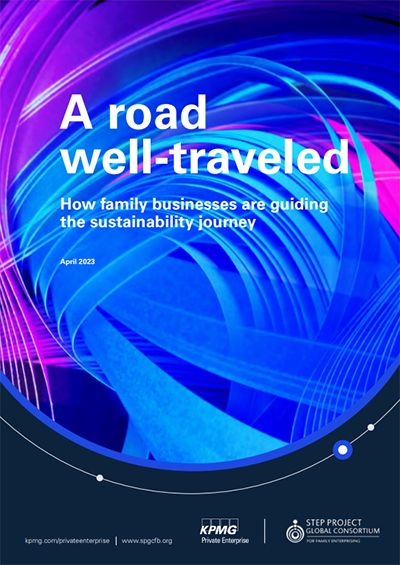Globally, clients and consumers are increasingly eager to pledge their loyalty to brands and organisations that have clear, established sustainability goals; they want to ensure that the businesses they’re investing in are committed to creating positive impact in environmental and social issues.
Building Sustainability is a road well-travelled for family businesses, woven into the DNA of these family businesses, where fostering the success of future generations is the only way to ensure the longevity of the business. This has placed family businesses in a first-mover advantage in the adoption of sustainability principles and processes – and the opportunity to influence other organisations as customers and suppliers.
Can any business survive without being ‘sustainable’? Certainly not family businesses whose underlying objectives implicitly seek to meet the needs of both the current generation and those in the future.
Key success indicators
Across the board, the Global Family Business Survey 2023 revealed eight key indicators that a family business has high levels of sustainability:








We see a strong connection between effective governance and the businesses’ long-term sustainability agenda. A strong governance mindset resulting in clear structures and inclusive decision making is resulting in better outcomes in defining, implementing and measuring sustainability strategies. There is a real need for families to review their governance arrangements taking deliberate steps to embed sustainability into the core of their long-term strategy.
Sustainability goals and performance
43% of family business survey respondents reported high levels of sustainability and digitalisation.
3 interconnected goals of family business leaders:
First-mover advantage in the sustainability journey
For a long time now, the sustainability agenda has been a priority for most organisations – however, many businesses are only making progress in small increments, setting lofty sustainability goals and moving towards them too slowly to have any real impact. Family businesses, on the other hand, have a long history of successful generation-to-generation value creation, positioning them as an authority in sustainability concerns.
In a survey of over 2,400 family businesses around the world, KPMG Private Enterprise in partnership with the STEP Project Global Consortium conducted both group discussions and personal interviews with global family business leaders. The findings unveiled in the Global Family Business Survey 2023 reveal that family businesses have been presented with a once-in-a-lifetime opportunity to forge the path to a more sustainable future, leading the way for other organisations in creating lasting social and environmental change.
Family businesses, in contrast to public companies, can more easily tap into their DNA to explain how they are planning the future long-term sustainability of their business. They don't have to convince themselves of the benefits of having a long term view. However, they should demonstrate to their stakeholders, how deliberate their approach is to ESG.
What does this mean for Australian family businesses?
It’s imperative for all family businesses to make sustainability principles business as usual if they want to retain customer loyalty and continue to create shared value for stakeholders. Family businesses are uniquely placed to act as a guiding light for their stakeholders in implementing enduring business practices and creating a brighter future for succeeding generations.
The family business model of looking to the long term has taken on a wider relevance in the wake of the drive towards sustainability. Being able to demonstrate their sustainability, in a viable and measurable way will position family businesses as market leaders, increase stakeholder value and provide an array of other benefits including ‘natural’ competitive advantage, improved customer loyalty and increased access to capital.

Global Family Business Survey 2023
How family business are guiding the sustainability journey.
Download report (PDF 3.5MB)How KPMG can help
KPMG’s Family Business team can identify your sustainability advantage. Starting with your principles as family businesses, we help cascade those principles as the basis for your sustainability success, and identify how your family business can utilise its DNA to become a leader in sustainable business practices.



